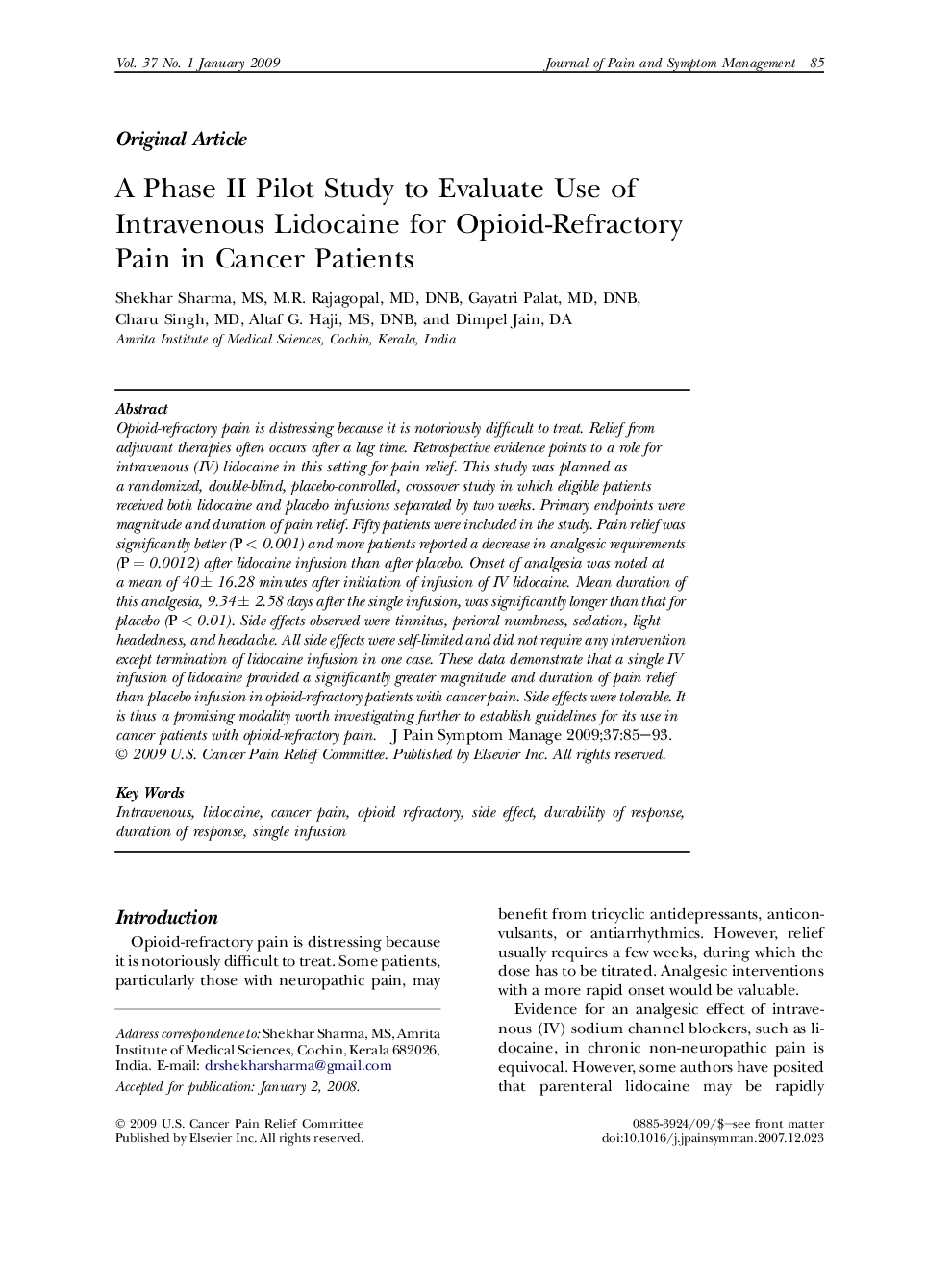| Article ID | Journal | Published Year | Pages | File Type |
|---|---|---|---|---|
| 2724682 | Journal of Pain and Symptom Management | 2009 | 9 Pages |
Opioid-refractory pain is distressing because it is notoriously difficult to treat. Relief from adjuvant therapies often occurs after a lag time. Retrospective evidence points to a role for intravenous (IV) lidocaine in this setting for pain relief. This study was planned as a randomized, double-blind, placebo-controlled, crossover study in which eligible patients received both lidocaine and placebo infusions separated by two weeks. Primary endpoints were magnitude and duration of pain relief. Fifty patients were included in the study. Pain relief was significantly better (P < 0.001) and more patients reported a decrease in analgesic requirements (P = 0.0012) after lidocaine infusion than after placebo. Onset of analgesia was noted at a mean of 40 ± 16.28 minutes after initiation of infusion of IV lidocaine. Mean duration of this analgesia, 9.34 ± 2.58 days after the single infusion, was significantly longer than that for placebo (P < 0.01). Side effects observed were tinnitus, perioral numbness, sedation, light-headedness, and headache. All side effects were self-limited and did not require any intervention except termination of lidocaine infusion in one case. These data demonstrate that a single IV infusion of lidocaine provided a significantly greater magnitude and duration of pain relief than placebo infusion in opioid-refractory patients with cancer pain. Side effects were tolerable. It is thus a promising modality worth investigating further to establish guidelines for its use in cancer patients with opioid-refractory pain.
